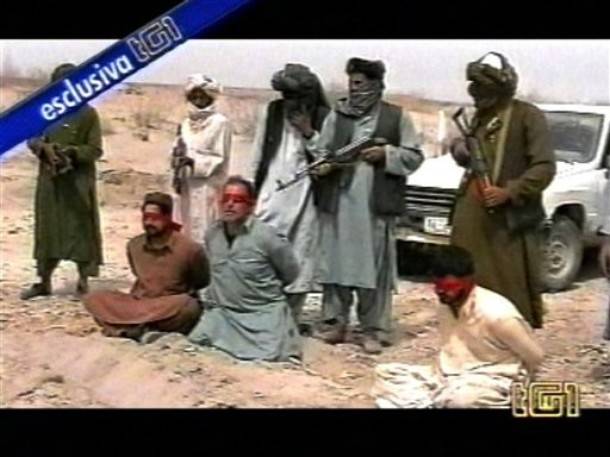


On April 26 the Italian Cultural Institute of Chicago hosted Daniele Mastrogiacomo, Italian - Swiss journalist and war correspondent for La Repubblica [2], Italy’s largest circulating newspaper.
Mastrogiacomo was in Chicago to present his book “Days of Fear” (Europa Editions [3]) a recounting of his fifteen days of captivity in the hands of the Taliban.
Italian Cultural Institute of Chicago [4] Director Tina Cervone introduced Daniele Mastrogiacomo to a crowded hall, making it clear that the Institute was honored by Mastrogiacomo’s presence, and giving a brief description of his work and captivity experience.
On March 5, 2007 Daniele Mastrogiacomo, his interpreter Ajmal Nashqkebandi and his driver Sayed Agha, headed to southern Afghanistan, a Taliban controlled area, after being promised an interview with a Taliban commander.
Once they arrived to their destination, rather than being granted an interview, they were kidnapped by Mullah Dadullah’s men and accused of espionage. A fifteen day ordeal began. The three hostages were kept constantly on the move in order to avoid detection, and were threatened with execution if Italy did not remove troops from Afghanistan.
This demand was not met. Sayed, and then Ajmal, were brutally beheaded. Sayed’s decapitation was filmed and circulated worldwide. Mastrogiacomo made an impassioned appeal to Italian authorities to “do something,” while underscoring the extreme delicacy of the situation.
In the end the Taliban freed Mastrogiacomo in exchange for five prisoners, thanks to the intervention of war surgeon and Emergency [5] founder Gino Strada. The journalist returned to Italy on March 20, 2007.
Mastrogiacomo began his book presentation by speaking about the Taliban. Days of Fear translator and mediator of the discussion, Michael Reynolds, read extracts of the book. Afterwards, Mastrogiacomo answered audience questions about his captors.
“They were really young religious scholars… they were nice sometimes, when we talked about the differences between Western and Eastern customs with sex, women, football and so on. But they could be violent and also deceptive… Above all the conversation tended towards the Afghan war and deadlines by which to withdraw troops.”
Mastrogiacomo admitted to having reservations about the Western military invasion of Iraq, mainly for economic reasons. However, he believes that a military presence in Afghanistan is necessary: “In Afghanistan the situation is different. It is fundamental not to impose our system and point of view on those people, but let them decide if they want the Taliban to be in the Afghan government. I know that people reject the idea of being ruled by the Taliban because of their support for Al Qaeda, which will bring terrible consequences for everyone ...”
Mastrogiacomo continued: “If we are not in Afghanistan, we cannot solve the situation from the ground … Leaving and doing nothing will not bring any positive help. Before any negotiation it is important to assume a strong position there. If the Afghan people decide not to accept help and to let Taliban rule, then that will be the right moment to leave them with their choices and their consequences….”
“Days of Fear” is an unforgettable work that describes raw, brutal reality in precise prose that is perfectly paced. It involves and moves the reader from the very first page. Mastrogiacomo explained that he wanted to write more than a personal narrative about his terrifying experience. He wanted "Days of Fear" to be a book about the Taliban, the way they live and their point of view, as well as a homage to the two men, his friends, who died at the Taliban’s hands.
“Days of Fear” became a substitute for the article that Daniele Mastrogiacomo had originally intended to write. His journalistic pursuit of an in-depth war story began the chain of events that caught the world’s attention in 2007. He will feel its impact for the rest of his life, and so will everyone who reads his book.
Edited by Natalia Nebel
Source URL: http://iitaly.org/magazine/events/reports/article/days-fear-daniele-mastrogiacomo-presents-book-his-kidnapping-in
Links
[1] http://iitaly.org/files/mastrogiacomo1273516634jpeg
[2] http://www.repubblica.it
[3] http://www.europaeditions.com
[4] http://www.iicchicago.esteri.it
[5] http://www.emergency.it